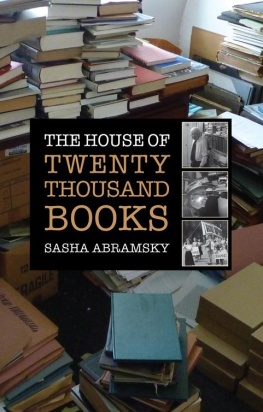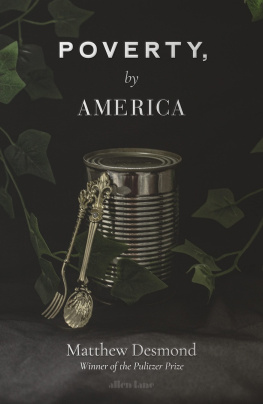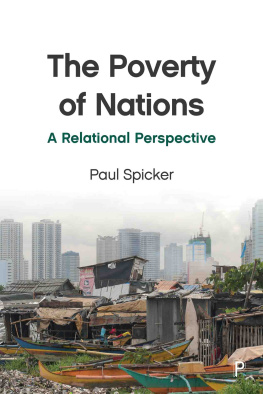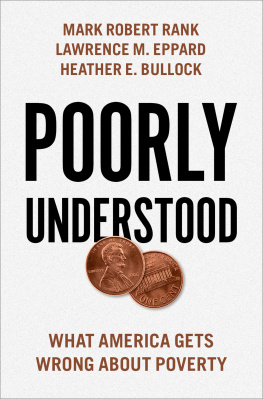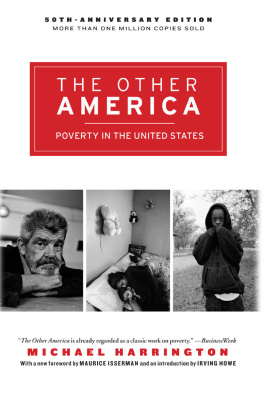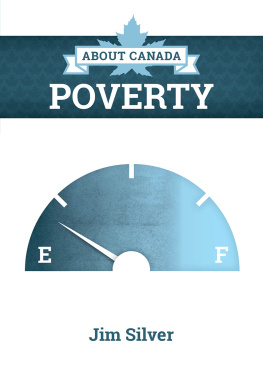
Also by
SASHA ABRAMSKY _______________________
Hard Time Blues (2002)
Conned (2006)
American Furies (2007)
Breadline USA (2009)
Inside Obamas Brain (2009)


www.nationbooks.org
Copyright 2013 by Sasha Abramsky
All photographs Sasha Abramsky
Published by Nation Books, A Member of the Perseus Books Group
116 East 16th Street, 8th Floor
New York, NY 10003
Nation Books is a co-publishing venture of the Nation Institute and the Perseus Books Group.
All rights reserved. No part of this book may be reproduced in any manner whatsoever without written permission except in the case of brief quotations embodied in critical articles and reviews. For information, address the Perseus Books Group, 250 West 57th Street, 15th Floor, New York, NY 10107.
Books published by Nation Books are available at special discounts for bulk purchases in the United States by corporations, institutions, and other organizations. For more information, please contact the Special Markets Department at the Perseus Books Group, 2300 Chestnut Street, Suite 200, Philadelphia, PA 19103, or call (800) 810-4145, extension 5000, or e-mail .
Designed by Trish Wilkinson
Set in 11 point Adobe Garamond Pro
Library of Congress Cataloging-in-Publication Data
Abramsky, Sasha.
The American way of poverty : how the other half still lives / Sasha Abramsky.
pages cm
Includes bibliographical references and index.
ISBN 978-1-56858-955-8 (e-book) 1. PovertyUnited States. 2. PoorUnited States. 3. EqualityUnited States. 4. United StatesPolitics and government2009 I. Title.
HC110.P6A54 2013
10 9 8 7 6 5 4 3 2 1
This book is dedicated to
my darling children, Sofia and Leo.
May you always keep your exquisitely
fine-tuned sense of fairness.
Contents
The American Way of Poverty is a book with many benefactors and champions. I wish I could say that I woke up one morning with the concept fully formed in my mind, but I didnt. Rather, there were an array of themes that I was exploring in my journalism and a slew of economic and political issues that, in the years surrounding the 2008 economic collapse, I found to be increasingly fascinating. The unifying concept of the bookthe notion that there is something quintessentially American in how we, as a country, think about and experience povertyemerged over time, with the issues crystallizing as I talked them over with editors; fellow writers; policy analysts and activists; and, of course, hundreds of people experiencing increasingly difficult economic conditions around the country.
The conceit is a large one: that a single book can both paint a vivid, reportage-based portrait of life on the margins of the worlds richest nation and, at the same time, develop a blueprint for a set of programmatic and conceptual changes that offer a way to a fairer future. Without a strong network of supporters who believed both that the issue was important and that I had it within me to tell this story, The American Way of Poverty would never have been written.
I owe a huge debt of gratitude to Mimi Corcoran and Elise Dellinger, both of the Open Society Foundations Special Fund for Poverty Alleviation. It was they who initially reached out to me to suggest a large-scale, long-term journey through this hidden America. And it was they who came through with a grant to make this project possible. Their colleague Maria Archuleta was also a source of continual encouragement as the project evolved, from the early days when I first began to build the Voices of Poverty oral history website through the frenetic months of writing this book.
From the beginning, my researcher, Caitlin Buckley, provided invaluable help and extraordinarily speedy responses to my requests for information. Her memo-writing and statistics-collecting skills got me over many a roadblock as the project unfolded. Philip Acosta of Frontside Productions went far beyond the call of duty in the time and effort he and his team put into designing and implementing the Voices of Poverty website. We worked hard, and sometimes under extreme deadlines, to get the website up and running. The result was a testament to Philips professionalism and dedication to the work at hand. Jessica Bartholow of the Western Center on Law and Poverty ended up serving as an informal member of the team, making herself available for frequent coffees, over which we would discuss complex public policy issues. Her input was crucial for framing the problems at hand. Substitute whiskey for coffee, and Glenn Backes performed a similarly valuable function. From afar, JoAnne Page in New York, Marshall Ganz in Cambridge, Rocky Anderson in Salt Lake City, and Bill Luckett in Mississippi also allowed me to use them as sounding boards.
Once the reporting itself got under way, another circle of colleagues came to play a vital role: the Nation magazines Katrina vanden Heuvel, Mark Sorkin, and Roane Carey all encouraged my work on poverty and spent time both brainstorming with me and editing my articles into a shape fit for publication. At the American Prospect, I owe thanks to Kit Rachlis, Harold Meyerson, and Bob Kuttner for their ongoing interest in my reporting on these themes. Other editors who backed this work include Mike Hoyt and Justin Peters at the Columbia Journalism Review and Melinda Welsh at the Sacramento News & Review. And, of course, I perennially owe profound appreciation to my agent, Victoria Skurnick, and to my book editor, Carl Bromley. A million thanks to you both for your determined belief in the vital nature of this project.
I would be remiss if I did not also give my warmest gratitude to Peter Barnes and the staff of the Mesa Refuge writers retreat, who provided me the inestimable gift in early fall 2012 of two weeks residency in the hills above the Pacific Ocean, just north of San Francisco. It was in those two paradisiacal weeks that the scales were lifted and the rough edges of the manuscript made smooth.

Almost always, any list of acknowledgments is incomplete and somewhat arbitrary. Let me, therefore, apologize in advance if I neglect to include individuals who feel they ought to have been included.
With that caveat, I owe particular thanks to the staff of Demos, a think tank at which I have been a fellow for a number of years and which, during that time, has done an extraordinary job of highlighting economic justice themes. My thanks to my colleagues at the University of California at Davisto my friends in the University Writing Program, who have given me the great opportunity to teach nonfiction writing to always-fascinating, always-changing groups of young students; to the attorneys at the law schools immigration law clinic, who have done so much to highlight the myriad challenges immigrants in America face; and to Ann Stevens, Marianne Page, and the other members of the wonderful team at the Center for Poverty Research, who are helping to put Americas poverty crisis center stage. My deepest gratitude, too, to Gary Dymski and A. G. Block, with whom I worked for several years at the University of California Center Sacramento, discussing public policy and economic questions with many of the best and the brightest from within the UC system and the world of California state politics. I owe a debt of gratitude as well to Jacob Hacker, Michael Katz, Katherine Newman, Alice OConnor, Jim Ziliak, and the many other academics around the country who took the time to explain their ideas to me and to point me in the direction of other people to talk to and additional books to read.
Next page

